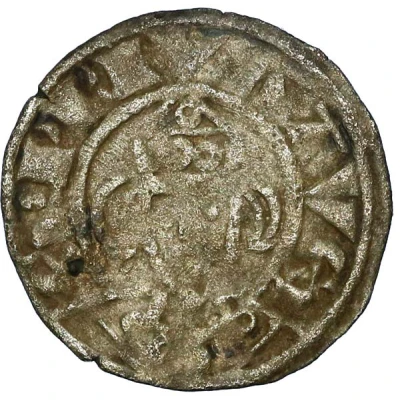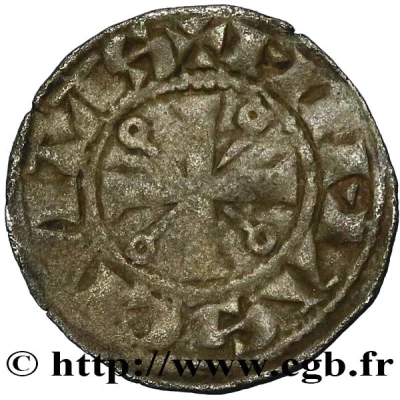


© CGB
Obol anonymous ND
| Billon | 0.41 g | 15 mm |
| Issuer | Bishopric of Mende (French States) |
|---|---|
| Type | Standard circulation coin |
| Years | 1150-1300 |
| Value | 1 Obol = ½ Denier (1⁄480) |
| Composition | Billon |
| Weight | 0.41 g |
| Diameter | 15 mm |
| Shape | Round (irregular) |
| Technique | Hammered |
| Orientation | Variable alignment ↺ |
| Demonetized | Yes |
| Updated | 2024-10-04 |
| Numista | N#215135 |
|---|---|
| Rarity index | 100% |
Reverse
Cross with four annulets in quarters linked by a line to the heart of the cross.
Script: Latin
Lettering: ✠ MIMΛS CIVITΛS
Translation: City of Mende.
Comment
This coinage is among the rarest coins of French feudal and is absent from the Boudeau. A first specimen discovered in Paladru was acquired in 1846 by the Cabinet of medals of Grenoble was published Gustave Vallier in 1875 and is included in the work of Émile Caron in 1882. The emissions of Mende are also attested by archival sources . In 1263, they were disparaged, but a new minting authorization was issued on February 9, 1266 and their course was confirmed in a document dated November 8, 1272.Interesting fact
One interesting fact about this coin is that it was used as a form of currency during a time of great religious and political change in Europe. The Bishopric of Mende was a powerful religious institution that played a significant role in the governance of the region, and the coin's design and materials reflect the influence of the Church during this period. Despite its small size and relatively low value, the Obol coin was an important part of everyday transactions and commerce in the region, and its preservation provides a unique window into the economic and social history of medieval Europe.